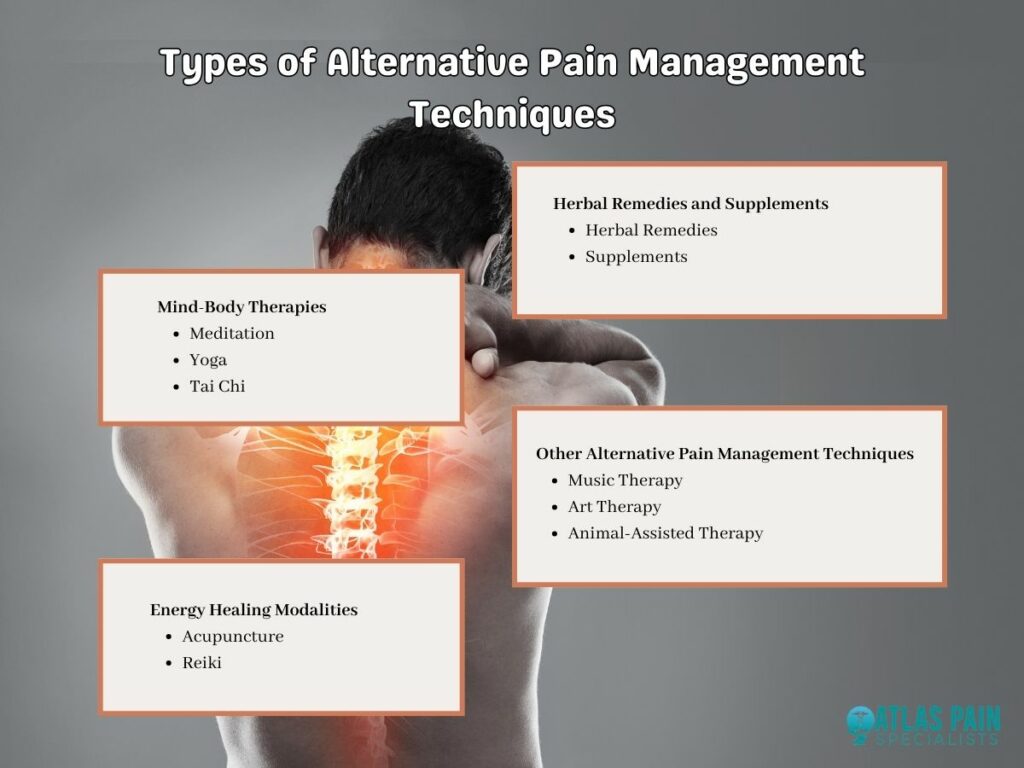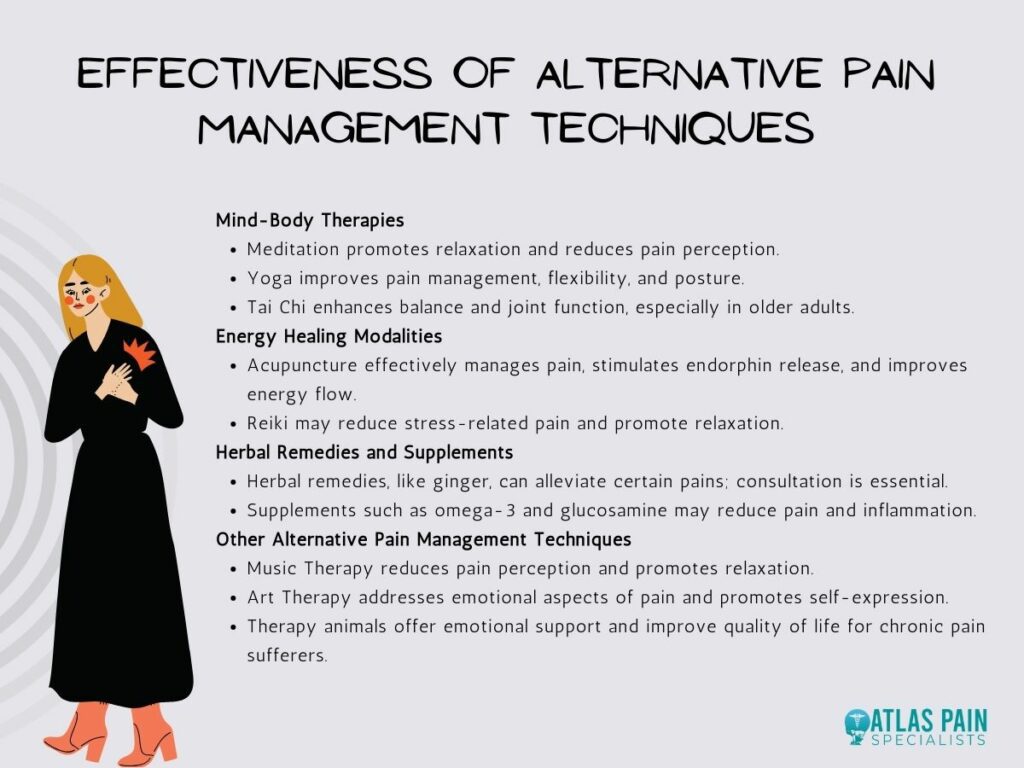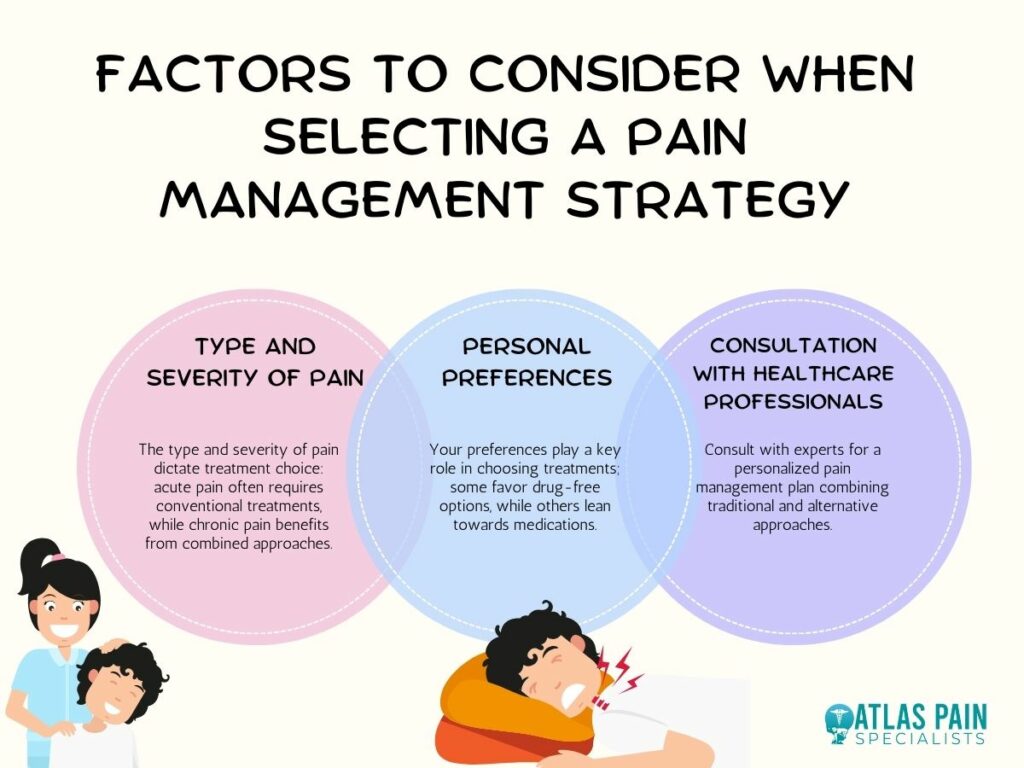

Are Alternative Pain Management Techniques Effective?
Pain can be a debilitating experience that affects millions of people worldwide. So, are alternative pain management techniques effective?
Conventional pain management techniques often rely on pharmaceutical drugs, which may have serious side effects and may not always provide effective relief.
This is where alternative pain management techniques come into play. These natural and holistic approaches focus on addressing the root cause of pain rather than just masking its symptoms.
In this blog post, we will explore the effectiveness of alternative pain management techniques and how they can benefit individuals suffering from chronic pain. We will also discuss some of the most popular alternatives and their benefits.
Table of Contents
Alternative Pain Management Techniques
Let's begin by understanding what alternative pain management techniques are. These approaches, often referred to as complementary or integrative therapies, offer an alternative to conventional medical treatments for pain relief.
While they may not replace medical interventions entirely, they can be used in conjunction with them to enhance the overall pain management experience.
Importance of Effective Pain Management
Effective pain management is crucial for several reasons.
- First and foremost, it improves the overall quality of life for individuals suffering from chronic pain conditions. Unmanaged pain can lead to physical and emotional suffering, affecting everything from daily activities to mental well-being.
- Moreover, alternative pain management techniques often have fewer side effects than pharmaceutical ones, making them safer for many people.
- They can also reduce the reliance on pain medications, which can be addictive and lead to adverse long-term effects.
Types of Alternative Pain Management Techniques
Now, let's dive into the various alternative pain management techniques that you can explore:

Mind-Body Therapies
- Meditation: Meditation is a practice that involves focused attention and relaxation techniques to calm the mind and reduce stress. It has been shown to be effective in managing chronic pain by promoting relaxation and reducing pain perception.
- Yoga: Yoga combines physical postures, breathing exercises, and meditation to improve flexibility, strength, and mental well-being. It can help reduce pain by increasing body awareness and promoting relaxation.
- Tai Chi: Tai Chi is a gentle martial art that involves slow, flowing movements and deep breathing. It can improve balance, flexibility, and overall physical function, making it an excellent choice for managing pain, especially in conditions like osteoarthritis.
Energy Healing Modalities
- Acupuncture: Acupuncture involves the insertion of thin needles into specific points on the body to stimulate energy flow and promote healing. It has been used for centuries to relieve pain and has gained widespread recognition for its effectiveness in managing various pain conditions.
- Reiki: Reiki is a form of energy healing that uses gentle touch or no-touch techniques to balance the body's energy and promote relaxation. While research on Reiki is ongoing, many people find it helpful in managing pain and reducing stress.
Herbal Remedies and Supplements
- Herbal Remedies: Various herbs and botanicals have pain-relieving properties. For example, ginger can help alleviate inflammation, and turmeric has anti-inflammatory properties. Always consult with a healthcare professional before incorporating herbal remedies into your pain management plan.
- Supplements: Some supplements, such as omega-3 fatty acids and glucosamine, have shown promise in reducing pain and inflammation, especially in conditions like arthritis. Consult your healthcare provider before adding supplements to your routine.
Other Alternative Pain Management Techniques
- Music Therapy: Music therapy involves listening to or creating music to promote relaxation and reduce pain perception. It can be a soothing and enjoyable way to manage pain, especially for those with a strong connection to music.
- Art Therapy: Art therapy allows individuals to express themselves through art, which can be a powerful way to cope with pain and process emotions related to it.
- Animal-Assisted Therapy: Interacting with therapy animals, such as dogs or horses, can provide emotional support and distraction from pain, improving overall well-being.
Effectiveness of Alternative Pain Management Techniques
Now that we've introduced various alternative pain management techniques let's delve deeper into their effectiveness. Understanding how these techniques can positively impact pain relief is crucial for making informed choices in your pain management journey.
Remember that the effectiveness of these approaches may vary from person to person and depend on the specific pain condition you're dealing with. Here's a closer look at how each of these techniques can contribute to your well-being:

Mind-Body Therapies
- Meditation promotes relaxation and helps individuals develop greater control over their thoughts and emotions, which can lead to a reduced perception of pain.
- Yoga is known for its positive impact on pain management, particularly for conditions like chronic back pain, arthritis, and fibromyalgia. It enhances flexibility, improves posture, and reduces muscle tension, relieving pain.
- Tai Chi has shown promise in improving balance, reducing falls, and alleviating pain, especially in older adults. Its slow and controlled movements can enhance joint function and overall physical well-being.
Energy Healing Modalities
- Acupuncture has a strong track record of effective management of pain, particularly for chronic headaches, osteoarthritis, and lower back pain. It is believed to stimulate the release of endorphins and improve energy flow.
- While scientific research on Reiki is ongoing, many individuals report feeling relaxed and experiencing reduced pain after Reiki sessions. It may be particularly useful for managing stress-related pain.
Herbal Remedies and Supplements
- Herbal Remedies can be effective for certain types of pain, such as ginger's anti-inflammatory properties for joint pain. However, their effectiveness can vary, and it's essential to consult with a healthcare professional to ensure safety and appropriate dosages.
- Some supplements, like omega-3 fatty acids and glucosamine, have shown promise in reducing pain and inflammation, particularly in conditions like osteoarthritis. However, results can vary from person to person, and consultation with a healthcare provider is crucial.
Other Alternative Pain Management Techniques
- Music Therapy can be highly effective in reducing pain perception and promoting relaxation. It is often used as a complementary approach to help patients manage pain and anxiety in healthcare settings.
- Art Therapy can effectively manage the emotional aspects of pain and promote self-expression. While it may not directly reduce physical pain, it can contribute to overall well-being and mental health.
- Interacting with therapy animals can provide emotional support, reduce stress, and distract from pain. While it may not eliminate pain entirely, it can improve the overall quality of life for individuals with chronic pain.
Evidence Supporting the Effectiveness of Alternative Pain Management Techniques
When evaluating the effectiveness of alternative pain management techniques, it's essential to consider the scientific evidence backing them. Here's how the evidence stacks up:
Randomized Controlled Trials
- Gold Standard Research: Randomized controlled trials (RCTs) are considered the gold standard for evaluating the effectiveness of treatments. Several RCTs have shown positive outcomes for pain management techniques like acupuncture and mindfulness meditation.
- Acupuncture RCTs: Numerous RCTs have demonstrated that acupuncture can significantly reduce pain, especially for chronic lower back pain and migraine headaches.
Observational Studies
- Real-World Effectiveness: Observational studies provide insight into how alternative techniques work in real-world settings. These studies have shown that yoga and tai chi can improve pain management and well-being.
- Long-Term Benefits: Observational studies have also highlighted the long-term benefits of mindfulness meditation, with individuals reporting reduced pain and improved quality of life.
Case Reports and Personal Testimonials
- Anecdotal Evidence: While not as scientifically rigorous as RCTs and observational studies, case reports, and personal testimonials can offer valuable insights into the individual experiences of pain management. Many individuals have found relief through alternative techniques and share their success stories.
Comparison between Traditional Medical Treatments and Alternative Pain Management Techniques
When deciding on a pain management strategy, it's crucial to consider both traditional medical treatments and alternative techniques. Each approach has its advantages and disadvantages, and various factors should guide your decision:
Traditional Medical Treatments
- Advantage: Conventional treatments often provide rapid relief for acute pain and can target the underlying cause. They are supported by extensive clinical research and medical expertise.
- Disadvantage: Some medications may have side effects or carry the risk of dependence. Invasive procedures can be costly and may involve risks.
Alternative Pain Management Techniques
- Advantage: Alternative techniques can offer non-invasive and drug-free options for managing pain. They often focus on holistic well-being, addressing pain's physical and emotional aspects.
- Disadvantage: The effectiveness of alternative techniques can vary from person to person, and they may not provide immediate relief for acute pain. They may also require consistent practice or sessions.
Factors to Consider When Selecting a Pain Management Strategy

- Type and Severity of Pain: The nature and severity of your pain condition should influence your treatment choice. Acute pain may benefit from conventional treatments, while chronic pain may benefit from a combination of approaches.
- Personal Preferences: Your preferences and comfort with different treatments play a significant role. Some individuals prefer drug-free options, while others may be more inclined toward medication.
- Consultation with Healthcare Professionals: Always consult with professionals who can provide guidance based on your specific condition and needs. They can help you create a tailored pain management plan that may include a combination of traditional and alternative approaches.
Conclusion
In the battle against pain, alternative techniques offer natural and holistic solutions that delve into the root causes. Meditation, acupuncture, and herbal remedies tap into the mind-body connection, promoting relaxation and reducing pain perception.
Scientific evidence underscores their potential effectiveness. However, consulting healthcare professionals for personalized pain management plans is crucial, as each journey is unique.
By combining alternative techniques with conventional medicine, individuals can empower themselves to achieve lasting relief and an improved quality of life. The key is exploring, consulting, and embracing a comprehensive pain management approach.
About Dr. Sean Ormond



